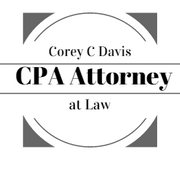
Running a successful small business is incredibly rewarding, but it’s not without drawbacks. One of the greatest challenges that small business owners face is filing taxes accurately and on time every year. After all, unless they run an accounting firm, it’s unlikely that tax law is their specialty. If you recently opened a small business in Texas—or are planning to soon—you probably have a lot of questions about handling the financial side of things. Here are the answers to some of the most frequently asked questions on the subject to help you get started.
Common Questions About Business Tax Laws
Can retailers include sales tax in the total price of an item?
Retailers may include sales tax in their pricing structure as long as they inform customers they are doing so. In other words, if you account for sales tax when determining the price of an item, you must prominently display a sign stating as much.
Can business owners round up when calculating sales tax?
Under tax law, business owners may only round sales tax up in specific scenarios. For example, if you run a business in Dallas, where the combined sales tax rate is 8.25%, and you sell an item for $150, the tax would amount to $12.375. In this circumstance, you could round up to $12.38. When the third decimal place is less than five, though, you must round down.
Do retailers have to cover the difference if they fail to collect enough in sales tax?
Retailers are responsible for both collecting the correct amount of sales tax and making accurate payments to the Comptroller’s office. If they fail to collect enough in sales tax on every purchase—perhaps by making a miscalculation, for example—they are responsible for the difference, as well as for any applicable interest and penalties.
Do sole proprietors have to pay sales tax?
If you are a sole proprietor, whether you have to pay sales tax depends on the items that you sell. Texas does not typically require sole proprietors to collect sales tax on digital goods or services. Goods that are subject to sales tax, on the other hand, include physical property. Some services are also subject to sales tax. Regardless of what they sell, though, sole proprietors do not have to pay the franchise tax.
If you need financial or legal advice in Texas regarding your small business, contact Corey C Davis CPA Attorney at Law in Kerrville. His services include tax preparation, estate planning, business formation, bookkeeping, and payroll administering. As a CPA and an attorney with more than a decade of experience, he is well versed in both the state and federal tax laws that might affect clients. To reach out and set up a consultation, visit his website or call (830) 257-8800.
About the Business
Have a question? Ask the experts!
Send your question

